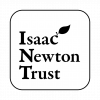
Submitted by Administrator on Tue, 02/10/2018 - 17:08
01 Sep 2018 - The aim of this seed fund is to provide opportunities to empower early career researchers to incorporate interdisciplinary approaches into their work by exploring new ideas for collaboration and forging new connections with researchers outside their own disciplines or host departments.
Cambridge Infectious Diseases IRC was awarded matching support from the Isaac Newton Fund to initiate an Early Career Interdisciplinary Research (IDR) Incubator Fund. The aim of this seed fund is to provide opportunities to empower early career researchers to incorporate interdisciplinary approaches into their work by exploring new ideas for collaboration and forging new connections with researchers outside their own disciplines or host departments.
A key component of successful ‘Pathways to Impact’ in research grant applications is having appropriate and effective collaborations in place to facilitate impact. This Fund will help early career members to build and strengthen their networks within and beyond Cambridge, thus laying the groundwork for future interdisciplinary funding bids focused around Infectious Diseases.
We offered interdisciplinary collaboration awards between $500 and £5,000 to support travel/accommodation/subsistence/ venue hosting costs/ non-capital research project operational costs - to arrange convening or lab exchange visits or support projects exchanging training/techniques between disciplines - through a competitive application system.
An open call resulted the following projects being awarded funding in this initial round:
1. Building bridges between the Kingdom of Bhutan and Cambridge: clinical experience and genetic analysis of canine transmissible tumour. Dr Andrea Stratkova (1st year Post Doc, supervisor Elizabeth Murchison, Department of Veterinary Medicine). Funds are being used to bring Dr Yoenten Phuentshok (one of only 12 qualified vets in Bhutan), to Cambridge to learn diagnostic techniques in genetics he will introduce to colleagues on return to Bhutan. A long-term collaboration is ongoing.
2. Modelling emerging phenomena to aid the design of a novel virological assay. Dr longzhu Shen (Post Doc, Supervisor Prof Derek Smith Department of Zoology). Funds are being used for Longzhu to a visit Prof Benzhuo Lu at the Chinese Academy of Science Mathematical Institute, to work collaboratively on a mathematical solution to a problem and to present work, and build relations with early career mathematicians in China.
3. Rapid identification of key arthropod vector species in the field. Dr Sam Subbs (2nd year Post Doc, Supervisor Dr Barbara Blacklaws, Department of Veterinary Medicine). The funds will be used to support a local field trip with Sam accompanying a field entomologist from LSTHM to learn mosquito trapping and ensure accurate species identification to optimize a PCR field diagnostics species test, which he will them implement himself in a new project in Indonesia in 2019.
4. Unravelling how an uncharacterised methyltransferase sustains phenazine toxin biosynthesis in the human pathogen, Pseudomonas aeruginosa. Dr Stephen Dolan (2nd year Post Doc, Supervisor Dr Martin Welch, Department of Chemistry). The funds are being used for Stephen to visit the lab of Dr Lars Dietrich, University of Columbia, New York to learn new techniques in electrochemical detection and digital micropscopy, and then apply these back in the lab with colleagues in Cambridge.
The Fund is helping CID implement our strategic objective to build a strong community of Early Career Researchers with the broad skills needed to make future breakthroughs, with the benefit of a common language and approach to problem solving. Supporting early career researchers is a key factor in developing our long-term, interdisciplinary research capacity to address key global challenges across fields. This includes finding ways to catalyse research collaborations nationally and internationally for exchange of knowledge and ideas.
A second round will open in the Autumn of 2018 to support additional projects in for 2019.

We wish to acknowledge the support of the Isaac Newton Trust Support and encourage potential sponsors to get in touch with us if you would like to contribute to this fund and grow the future.

